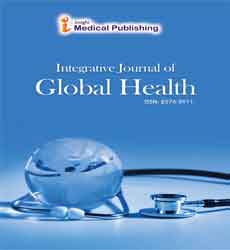ISSN : 2576-3911
Integrative Journal of Global Health
Evaluating an online well-being program for college students during the COVID-19 pandemic
Introduction: The global COVID-19 pandemic has aggravated challenges involving college students’ mental health and well-being. Some literature suggested developing online programs to address the pandemic’s impact on college students’ mental health and well-being. Thus, this study assessed if significant improvement in well-being among college students can be observed after introducing an online well-being program.
Methods: The study utilized a quantitative methodology, mainly using a two-group pretest-posttest design on 178 college students in a private college and state university. The experimental group received 3 months of the well-being program while the control resumed their activities of daily living (ADL). The modified positive emotion, engagement, relationship, meaning, and accomplishment (PERMA) profiler questionnaire was the primary evaluation instrument that measured the participants’ well-being. The first phase gathered the participants’ relevant profile and background, and the last phase concluded with the evaluation of the program. Data were analyzed using SPSS v.21.
Open Access Journals
- Aquaculture & Veterinary Science
- Chemistry & Chemical Sciences
- Clinical Sciences
- Engineering
- General Science
- Genetics & Molecular Biology
- Health Care & Nursing
- Immunology & Microbiology
- Materials Science
- Mathematics & Physics
- Medical Sciences
- Neurology & Psychiatry
- Oncology & Cancer Science
- Pharmaceutical Sciences
